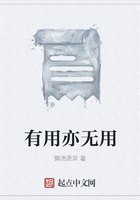The thing I had been most sensible of in that talk with George Gravener was the way Saltram's name kept out of it.It seemed to me at the time that we were quite pointedly silent about him; but afterwards it appeared more probable there had been on my companion's part no conscious avoidance.Later on I was sure of this, and for the best of reasons--the ****** reason of my perceiving more completely that, for evil as well as for good, he said nothing to Gravener's imagination.That honest man didn't fear him--he was too much disgusted with him.No more did I, doubtless, and for very much the same reason.I treated my friend's story as an absolute confidence; but when before Christmas, by Mrs.Saltram, I was informed of Lady Coxon's death without having had news of Miss Anvoy's return, I found myself taking for granted we should hear no more of these nuptials, in which, as obscurely unnatural, I now saw I had never TOOdisconcertedly believed.I began to ask myself how people who suited each other so little could please each other so much.The charm was some material charm, some afffinity, exquisite doubtless, yet superficial some surrender to youth and beauty and passion, to force and grace and fortune, happy accidents and easy contacts.
They might dote on each other's persons, but how could they know each other's souls? How could they have the same prejudices, how could they have the same horizon? Such questions, I confess, seemed quenched but not answered when, one day in February, going out to Wimbledon, I found our young lady in the house.A passion that had brought her back across the wintry ocean was as much of a passion as was needed.No impulse equally strong indeed had drawn George Gravener to America; a circumstance on which, however, Ireflected only long enough to remind myself that it was none of my business.Ruth Anvoy was distinctly different, and I felt that the difference was not simply that of her marks of mourning.Mrs.
Mulville told me soon enough what it was: it was the difference between a handsome girl with large expectations and a handsome girl with only four hundred a year.This explanation indeed didn't wholly content me, not even when I learned that her mourning had a double cause--learned that poor Mr.Anvoy, giving way altogether, buried under the ruins of his fortune and leaving next to nothing, had died a few weeks before.
"So she has come out to marry George Gravener?" I commented.
"Wouldn't it have been prettier of him to have saved her the trouble?""Hasn't the House just met?" Adelaide replied."And for Mr.
Gravener the House--!" Then she added: "I gather that her having come is exactly a sign that the marriage is a little shaky.If it were quite all right a self-respecting girl like Ruth would have waited for him over there."I noted that they were already Ruth and Adelaide, but what I said was: "Do you mean she'll have had to return to MAKE it so?""No, I mean that she must have come out for some reason independent of it." Adelaide could only surmise, however, as yet, and there was more, as we found, to be revealed.Mrs.Mulville, on hearing of her arrival, had brought the young lady out in the green landau for the Sunday.The Coxons were in possession of the house in Regent's Park, and Miss Anvoy was in dreary lodgings.George Gravener had been with her when Adelaide called, but had assented graciously enough to the little visit at Wimbledon.The carriage, with Mr.Saltram in it but not mentioned, had been sent off on some errand from which it was to return and pick the ladies up.
Gravener had left them together, and at the end of an hour, on the Saturday afternoon, the party of three had driven out to Wimbledon.
This was the girl's second glimpse of our great man, and I was interested in asking Mrs.Mulville if the impression made by the first appeared to have been confirmed.On her replying after consideration, that of course with time and opportunity it couldn't fail to be, but that she was disappointed, I was sufficiently struck with her use of this last word to question her further.
"Do you mean you're disappointed because you judge Miss Anvoy to be?""Yes; I hoped for a greater effect last evening.We had two or three people, but he scarcely opened his mouth.""He'll be all the better to-night," I opined after a moment.Then I pursued: "What particular importance do you attach to the idea of her being impressed?"Adelaide turned her mild pale eyes on me as for rebuke of my levity."Why the importance of her being as happy as WE are!"I'm afraid that at this my levity grew."Oh that's a happiness almost too great to wish a person!" I saw she hadn't yet in her mind what I had in mine, and at any rate the visitor's actual bliss was limited to a walk in the garden with Kent Mulville.Later in the afternoon I also took one, and I saw nothing of Miss Anvoy till dinner, at which we failed of the company of Saltram, who had caused it to be reported that he was indisposed and lying down.















